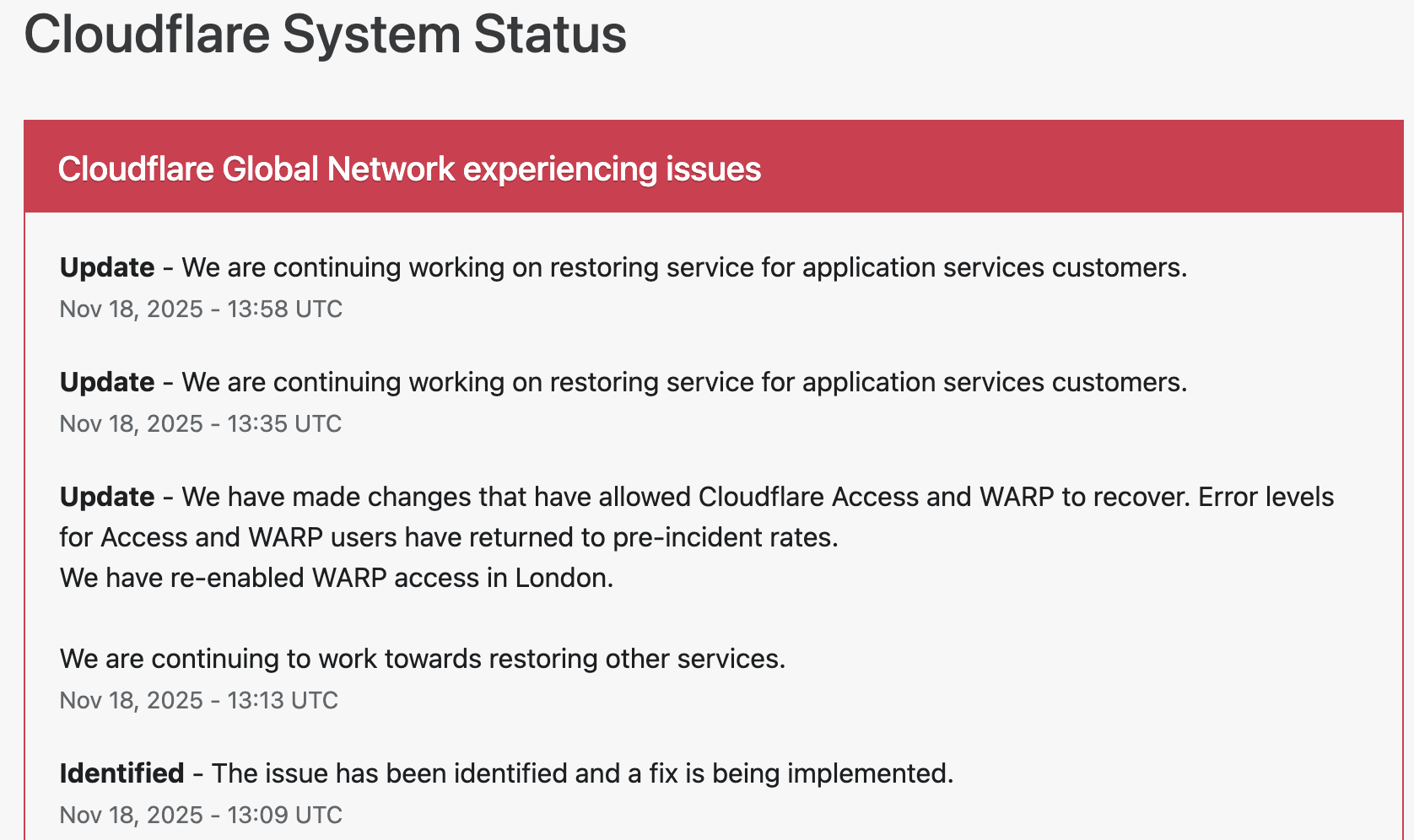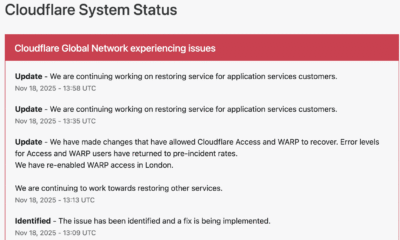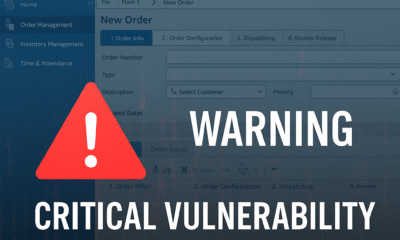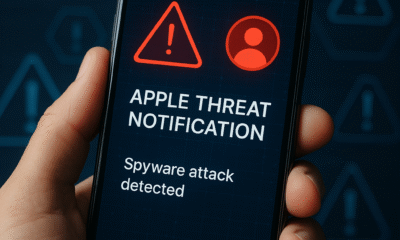data breaches
Cybersecurity Attack Takes MoneyGram Offline for Three Days – and Counting

MoneyGram, a global leader in cross-border P2P (peer-to-peer) payments and money transfers, recently experienced a significant cybersecurity breach that has left its operations crippled for three consecutive days. The incident highlights growing concerns about vulnerabilities in the financial services sector and the far-reaching impacts such attacks can have on businesses and consumers alike. As the investigation into the attack continues, experts are assessing the implications of this breach and the broader issues it raises for cybersecurity in the digital economy.
The Attack: What Happened?
On Monday, MoneyGram’s internal systems detected unusual activity, triggering an automatic shutdown of its operations. It quickly became apparent that the company was under a targeted cyberattack. While the specifics of the breach have not been disclosed, it is suspected to be a sophisticated ransomware attack aimed at compromising critical infrastructure. This resulted in an immediate suspension of MoneyGram’s online services, including customer transactions, agent activities, and other business processes vital to its global operations.
According to sources familiar with the investigation, the attackers likely infiltrated the system through a phishing scheme or exploitation of known vulnerabilities in MoneyGram’s software infrastructure. Ransomware has been a preferred method for cybercriminals in recent years due to its ability to encrypt sensitive data and demand payments in exchange for decryption keys.
The scope of the attack has been devastating. With operations spanning over 200 countries and territories, MoneyGram processes millions of dollars in transactions daily. Being offline for three consecutive days has not only disrupted financial flows for businesses and individuals but also damaged consumer trust.
Impact on Consumers and Businesses
The most immediate and visible consequence of the attack is the disruption of MoneyGram’s services. Both consumers and businesses have faced challenges as they were unable to send or receive money transfers during the downtime. For many customers, particularly those in developing countries where remittances represent a critical source of income, the outage has been particularly painful.
For businesses reliant on MoneyGram’s infrastructure to process payments, the downtime has led to substantial financial losses. Small businesses, in particular, are suffering as they navigate through the uncertainty and lack of communication regarding when full services will be restored. While MoneyGram has reassured customers that their data remains secure, the prolonged outage has led to widespread concerns about the integrity of the company’s cybersecurity defenses.
The financial services sector is one of the most targeted by cybercriminals, given the high value of sensitive data, including personal and financial information. Any breach in this sector has the potential to expose millions of customers to identity theft, fraud, and other forms of cybercrime. Fortunately, there is no evidence, at this stage, to suggest that customer information has been compromised, but the longer the outage persists, the more pressure will mount for transparency and answers.
MoneyGram’s Response: What Are They Doing to Resolve the Issue?
MoneyGram has been relatively tight-lipped about the specific details of the attack, likely due to ongoing forensic investigations. However, the company has issued public statements acknowledging the attack and outlining its efforts to resolve the situation. MoneyGram has deployed cybersecurity experts and is working closely with law enforcement agencies to investigate the breach and bring systems back online as quickly as possible.
A statement from the company’s CEO expressed empathy for customers affected by the disruption, emphasizing that the security of customer data is of utmost priority. “We understand the severity of this situation, and our teams are working around the clock to resolve the issue and minimize disruption,” the CEO stated.
Industry insiders suggest that restoring full functionality to MoneyGram’s services may take longer than expected due to the complexity of the ransomware attack. Typically, companies facing such attacks have to make difficult decisions, including whether to pay the ransom. However, many cybersecurity experts advise against paying ransom demands, as it not only funds criminal activities but also does not guarantee that systems will be restored or that sensitive data will remain secure.
A Broader Cybersecurity Problem
MoneyGram’s ordeal is not an isolated incident. The frequency of cyberattacks on financial institutions has risen exponentially over the past few years. According to a report by cybersecurity firm SonicWall, ransomware attacks surged by 105% globally in 2023 alone, with the financial sector being one of the top targets. The rise of ransomware-as-a-service (RaaS) has made it easier for less-skilled cybercriminals to launch sophisticated attacks by renting malware developed by more experienced hackers.
What makes the MoneyGram incident particularly alarming is the attack’s timing. As digital payments continue to replace cash-based transactions, companies like MoneyGram are becoming ever more integral to the global financial ecosystem. Yet, as these platforms grow in importance, so too does their attractiveness to cybercriminals. The reliance on digital systems, coupled with the complexity of financial services infrastructure, creates a perfect storm for cyberattacks.
Cybersecurity experts believe that MoneyGram’s attack will serve as a wake-up call for the industry, signaling the need for enhanced security measures and stronger regulations. Financial institutions may need to invest more heavily in technologies like artificial intelligence (AI) and machine learning (ML) to detect and neutralize threats before they cause significant damage. Additionally, greater collaboration between companies, governments, and cybersecurity experts will be essential to combat the ever-evolving threat landscape.
Regulatory and Legal Implications
The MoneyGram cyberattack also raises questions about regulatory oversight in the financial sector. In many regions, cybersecurity standards for financial institutions are becoming more stringent. For instance, the European Union’s General Data Protection Regulation (GDPR) imposes significant penalties for data breaches, and the U.S. is considering similarly tough regulations with proposed updates to the Gramm-Leach-Bliley Act (GLBA).
MoneyGram could face substantial legal challenges in the aftermath of this attack. Even if customer data remains secure, the disruption of services for such an extended period could result in lawsuits from consumers and businesses. Furthermore, if evidence emerges that MoneyGram had vulnerabilities in its system that could have been prevented through more robust cybersecurity practices, the company could face regulatory fines.
What’s Next for MoneyGram?
As MoneyGram works to bring its systems back online, the company will likely face long-term challenges in restoring consumer trust and ensuring that such an incident does not occur again. Reputation management will be crucial in the coming months, as customers and businesses scrutinize how the company handled the breach.
The company’s ability to transparently communicate its next steps will be a key factor in maintaining credibility. Customers will want to know what MoneyGram is doing to improve its defenses and how the company plans to compensate those affected by the downtime.
In the broader context, this attack may serve as a pivotal moment for the financial services industry, forcing companies to rethink their cybersecurity strategies. With attacks becoming more frequent and sophisticated, the need for proactive, rather than reactive, cybersecurity measures has never been more urgent.
As the world becomes more interconnected, incidents like the MoneyGram attack remind us of the vulnerabilities inherent in our digital systems. For MoneyGram, the next few days will be critical in determining how quickly it can recover from this ordeal and what lessons it, along with the broader financial community, can learn to prevent future cyber disasters.
data breaches
Cloudflare Outage Disrupts Global Internet — Company Restores Services After Major Traffic Spike

November 18, 2025 — MAG212NEWS
A significant outage at Cloudflare, one of the world’s leading internet infrastructure providers, caused widespread disruptions across major websites and online services on Tuesday. The incident, which began mid-morning GMT, temporarily affected access to platforms including ChatGPT, X (formerly Twitter), and numerous business, government, and educational services that rely on Cloudflare’s network.
According to Cloudflare, the outage was triggered by a sudden spike in “unusual traffic” flowing into one of its core services. The surge caused internal components to return 500-series error messages, leaving users unable to access services across regions in Europe, the Middle East, Asia, and North America.
Impact Across the Web
Because Cloudflare provides DNS, CDN, DDoS mitigation, and security services for millions of domains — powering an estimated 20% of global web traffic — the outage had swift and wide-reaching effects.
Users reported:
- Website loading failures
- “Internal Server Error” and “Bad Gateway” messages
- Slowdowns on major social platforms
- Inaccessibility of online tools, APIs, and third-party authentication services
The outage also briefly disrupted Cloudflare’s own customer-support portal, highlighting the interconnected nature of the company’s service ecosystem.
Cloudflare’s Response and Restoration
Cloudflare responded within minutes, publishing updates on its official status page and confirming that engineering teams were investigating the anomaly.
The company took the following steps to restore operations:
1. Rapid Detection and Acknowledgement
Cloudflare engineers identified elevated error rates tied to an internal service degradation. Public communications were issued to confirm the outage and reassure customers.
2. Isolating the Affected Systems
To contain the disruption, Cloudflare temporarily disabled or modified specific services in impacted regions. Notably, the company deactivated its WARP secure-connection service for users in London to stabilize network behavior while the fix was deployed.
3. Implementing Targeted Fixes
Technical teams rolled out configuration changes to Cloudflare Access and WARP, which successfully reduced error rates and restored normal traffic flow. Services were gradually re-enabled once systems were verified stable.
4. Ongoing Root-Cause Investigation
While the unusual-traffic spike remains the confirmed trigger, Cloudflare stated that a full internal analysis is underway to determine the exact source and prevent a recurrence.
By early afternoon UTC, Cloudflare confirmed that systems had returned to pre-incident performance levels, and affected services worldwide began functioning normally.
Why This Matters
Tuesday’s outage underscores a critical truth about modern internet architecture: a handful of infrastructure companies underpin a massive portion of global online activity. When one of them experiences instability — even briefly — the ripple effects are immediate and worldwide.
For businesses, schools, governments, and content creators, the incident is a reminder of the importance of:
- Redundant DNS/CDN providers
- Disaster-recovery and failover plans
- Clear communication protocols during service outages
- Vendor-dependency risk assessments
Cloudflare emphasized that no evidence currently points to a cyberattack, though the nature of the traffic spike remains under investigation.
Looking Ahead
As Cloudflare completes its post-incident review, the company is expected to provide a detailed breakdown of the technical root cause and outline steps to harden its infrastructure. Given Cloudflare’s central role in global internet stability, analysts say the findings will be watched closely by governments, cybersecurity professionals, and enterprise clients.
For now, services are restored — but the outage serves as a powerful reminder of how interconnected and vulnerable the global web can be.
data breaches
Cloudflare Outage Analysis: Systemic Failure in Edge Challenge Mechanism Halts Global Traffic

SAN FRANCISCO, CA — A widespread disruption across major internet services, including AI platform ChatGPT and social media giant X (formerly Twitter), has drawn critical attention to the stability of core internet infrastructure. The cause traces back to a major service degradation at Cloudflare, the dominant content delivery network (CDN) and DDoS mitigation provider. Users attempting to access affected sites were met with an opaque, yet telling, error message: “Please unblock challenges.cloudflare.com to proceed.”
This incident was not a simple server crash but a systemic failure within the crucial Web Application Firewall (WAF) and bot management pipeline, resulting in a cascade of HTTP 5xx errors that effectively severed client-server connections for legitimate users.
The Mechanism of Failure: challenges.cloudflare.com
The error message observed globally points directly to a malfunction in Cloudflare’s automated challenge system. The subdomain challenges.cloudflare.com is central to the company’s security and bot defense strategy, acting as an intermediate validation step for traffic suspected of being malicious (bots, scrapers, or DDoS attacks).
This validation typically involves:
- Browser Integrity Check (BIC): A non-invasive test ensuring the client browser is legitimate.
- Managed Challenge: A dynamic, non-interactive proof-of-work check.
- Interactive Challenge (CAPTCHA): A final, user-facing verification mechanism.
In a healthy system, a user passing through Cloudflare’s edge network is either immediately granted access or temporarily routed to this challenge page for verification.
During the outage, however, the Challenge Logic itself appears to have failed at the edge of Cloudflare’s network. When the system was invoked (likely due to high load or a misconfiguration), the expected security response—a functional challenge page—returned an internal server error (a 500-level status code). This meant:
- The Request Loop: Legitimate traffic was correctly flagged for a challenge, but the server hosting the challenge mechanism failed to process or render the page correctly.
- The
HTTP 500Cascade: Instead of displaying the challenge, the Cloudflare edge server returned a “500 Internal Server Error” to the client, sometimes obfuscated by the text prompt to “unblock” the challenges domain. This effectively created a dead end, blocking authenticated users from proceeding to the origin server (e.g., OpenAI’s backend for ChatGPT).
Technical Impact on Global Services
The fallout underscored the concentration risk inherent in modern web architecture. As a reverse proxy, Cloudflare sits between the end-user and the origin server for a vast percentage of the internet.
For services like ChatGPT, which rely heavily on fast, secure, and authenticated API calls and constant data exchange, the WAF failure introduced severe latency and outright connection refusal. A failure in Cloudflare’s global network meant that fundamental features such as DNS resolution, TLS termination, and request routing were compromised, leading to:
- API Timeouts: Applications utilizing Cloudflare’s API for configuration or deployment experienced critical failures.
- Widespread Service Degradation: The systemic 5xx errors at the L7 (Application Layer) caused services to appear “down,” even if the underlying compute resources and databases of the origin servers remained fully operational.
Cloudflare’s official status updates confirmed they were investigating an issue impacting “multiple customers: Widespread 500 errors, Cloudflare Dashboard and API also failing.” While the exact trigger was later traced to an internal platform issue (in some historical Cloudflare incidents, this has been a BGP routing error or a misconfigured firewall rule pushed globally), the user-facing symptom highlighted the fragility of relying on a single third-party for security and content delivery on a global scale.
Mitigation and the Single Point of Failure
While Cloudflare teams worked to roll back configuration changes and isolate the fault domain, the incident renews discussion on the “single point of failure” doctrine. When a critical intermediary layer—responsible for security, routing, and caching—experiences a core logic failure, the entire digital economy resting on it is exposed.
Engineers and site reliability teams are now expected to further scrutinize multi-CDN and multi-cloud strategies, ensuring that critical application traffic paths are not entirely dependent on a single third-party’s edge infrastructure, a practice often challenging due to cost and operational complexity. The “unblock challenges” error serves as a stark reminder of the technical chasm between a user’s browser and the complex, interconnected security apparatus that underpins the modern web.
data breaches
Manufacturing Software at Risk from CVE-2025-5086 Exploit

Dassault Systèmes patches severe vulnerability in Apriso manufacturing software that could let attackers bypass authentication and compromise factories worldwide.
A newly disclosed flaw, tracked as CVE-2025-5086, poses a major security risk to manufacturers using Dassault Systèmes’ DELMIA Apriso platform. The bug could allow unauthenticated attackers to seize control of production environments, prompting urgent patching from the vendor and warnings from cybersecurity experts.
A critical vulnerability in DELMIA Apriso, a manufacturing execution system used by global industries, could let hackers bypass authentication and gain full access to sensitive production data, according to a security advisory published this week.
Dassault Systèmes confirmed the flaw, designated CVE-2025-5086, affects multiple versions of Apriso and scored 9.8 on the CVSS scale, placing it in the “critical” category. Researchers said the issue stems from improper authentication handling that allows remote attackers to execute privileged actions without valid credentials.
The company has released security updates and urged immediate deployment, warning that unpatched systems could become prime targets for industrial espionage or sabotage. The flaw is particularly alarming because Apriso integrates with enterprise resource planning (ERP), supply chain, and industrial control systems, giving attackers a potential foothold in critical infrastructure.
- “This is the kind of vulnerability that keeps CISOs awake at night,” said Maria Lopez, industrial cybersecurity analyst at Kaspersky ICS CERT. “If exploited, it could shut down production lines or manipulate output, creating enormous financial and safety risks.”
- “Manufacturing software has historically lagged behind IT security practices, making these flaws highly attractive to threat actors,” noted James Patel, senior researcher at SANS Institute.
- El Mostafa Ouchen, cybersecurity author, told MAG212News: “This case shows why manufacturing execution systems must adopt zero-trust principles. Attackers know that compromising production software can ripple across supply chains and economies.”
- “We are actively working with customers and partners to ensure systems are secured,” Dassault Systèmes said in a statement. “Patches and mitigations have been released, and we strongly recommend immediate updates.”
Technical Analysis
The flaw resides in Apriso’s authentication module. Improper input validation in login requests allows attackers to bypass session verification, enabling arbitrary code execution with administrative privileges. Successful exploitation could:
- Access or modify production databases.
- Inject malicious instructions into factory automation workflows.
- Escalate attacks into connected ERP and PLM systems.
Mitigations include applying vendor patches, segmenting Apriso servers from external networks, enforcing MFA on supporting infrastructure, and monitoring for abnormal authentication attempts.
Impact & Response
Organizations in automotive, aerospace, and logistics sectors are particularly exposed. Exploited at scale, the vulnerability could cause production delays, supply chain disruptions, and theft of intellectual property. Security teams are advised to scan their environments, apply updates, and coordinate incident response planning.
Background
This disclosure follows a string of high-severity flaws in industrial and operational technology (OT) software, including vulnerabilities in Siemens’ TIA Portal and Rockwell Automation controllers. Experts warn that adversaries—ranging from ransomware gangs to state-sponsored groups—are increasingly focusing on OT targets due to their high-value disruption potential.
Conclusion
The CVE-2025-5086 flaw underscores the urgency for manufacturers to prioritize cybersecurity in factory software. As digital transformation accelerates, securing industrial platforms like Apriso will be critical to ensuring business continuity and protecting global supply chains.

















